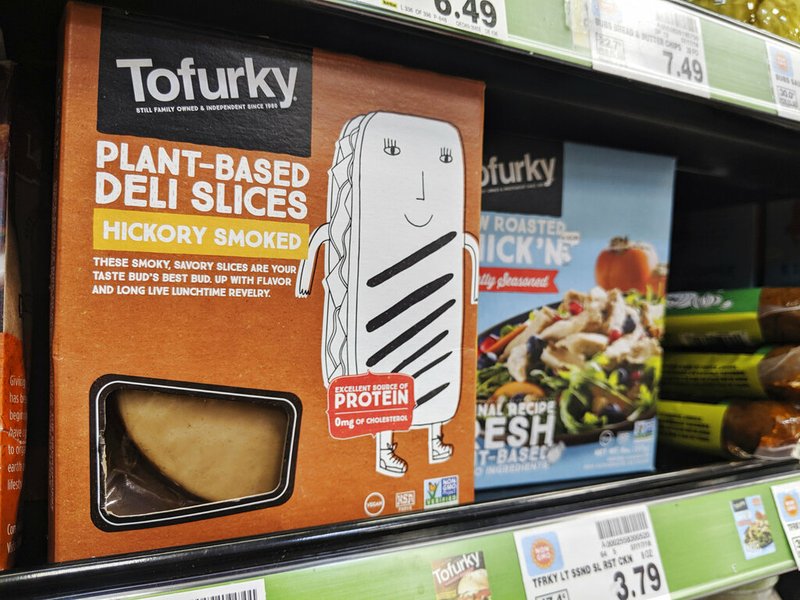A federal bill that would require that plant- and cell-based meat products be labeled as "imitation" was introduced in Washington last week.
The bill has the support of farmers and ranchers. Others call it an unnecessary overreach.
Plant-based foods created to look, feel and taste like beef or chicken are growing in popularity. Lawmakers have tried, and succeeded at times, to pass laws that call for producers of such products to be fined for improper labeling. Their reasoning is that shoppers are unintentionally buying meatless meats instead of the real thing.
"Imitation products ... create confusion in the marketplace," U.S. Reps. Roger Marshall, R-Kan., and Anthony Brindisi, D-N.Y., said in legislation filed Friday.
To address the concern on a national scale, they wrote a bill called the Real Meat Act of 2019 to ensure that consumers make informed decisions in choosing between meat and imitation meat products.
"Any imitation meat food product, beef or beef product shall be deemed to be misbranded unless its label bears, in type of uniform size and prominence, the word 'imitation' immediately before or after the name of the food and a statement that clearly indicates the product is not derived from or does not contain meat," the six-page bill says.
If any food is found mislabeled, the bill says the secretary of the Health and Human Services Department shall within 60 days notify the secretary of agriculture. If Health and Human Services fails to notify the secretary of agriculture, the agriculture secretary may treat each instance as misbranding under the Federal Meat Inspection Act.
The National Cattlemen's Beef Association applauded the bill this week, issuing a statement that a growing number of fake meat products are clearly trying to mislead shoppers about what they're trying to buy.
"Consumers need to be protected from deceptive marketing practices, and cattle producers need to be able to compete on a fair, level playing field," said Jennifer Houston, a Tennessee cattle grower and president of the cattlemen's group.
The federal bill defines "imitation meat food product" as any good made to look, feel, taste or approximate the chemicals of specific types of meat, but does not contain any meat or meat ingredients.
In March, Arkansas Act 501 was passed to regulate the labeling of foods derived from plants or laboratory-grown cells of beef, pork or poultry. Several states have passed similar legislation, but Arkansas' is the only one that includes a section on "cauliflower rice."
Two days before the new law was to take effect, Turtle Island Foods, doing business as the Tofurky Co., sued Arkansas, stalling enforcement of the act indefinitely. Trials are underway.
The U.S. Cattlemen's Association, a separate group in Washington, D.C., said it is pleased to see lawmakers joining the fight to establish a federal beef definition and clear regulations governing the labeling of plant-based foods.
"We will be urging co-sponsors in the House and bill introduction in the Senate," Lia Biondo, director of policy and outreach with the U.S. Cattlemen's Association, said in an email Tuesday.
Others want to kill the bill.
"This bill is a baldfaced attempt to get the government to police food labels to benefit the conventional meat industry, not consumers," Jessica Almy, director of policy for the Good Food Institute, said in an email Tuesday.
"Rather than let consumers decide the winners and losers in a free marketplace, this bill attempts to stigmatize plant-based foods by requiring that they be labeled 'imitation' to tilt the playing field to benefit conventional meat," she continued.
"We are confident that Congress will see this bill for what it is -- unnecessary government overreach -- and we do not expect it will get much traction."
Business on 10/31/2019
